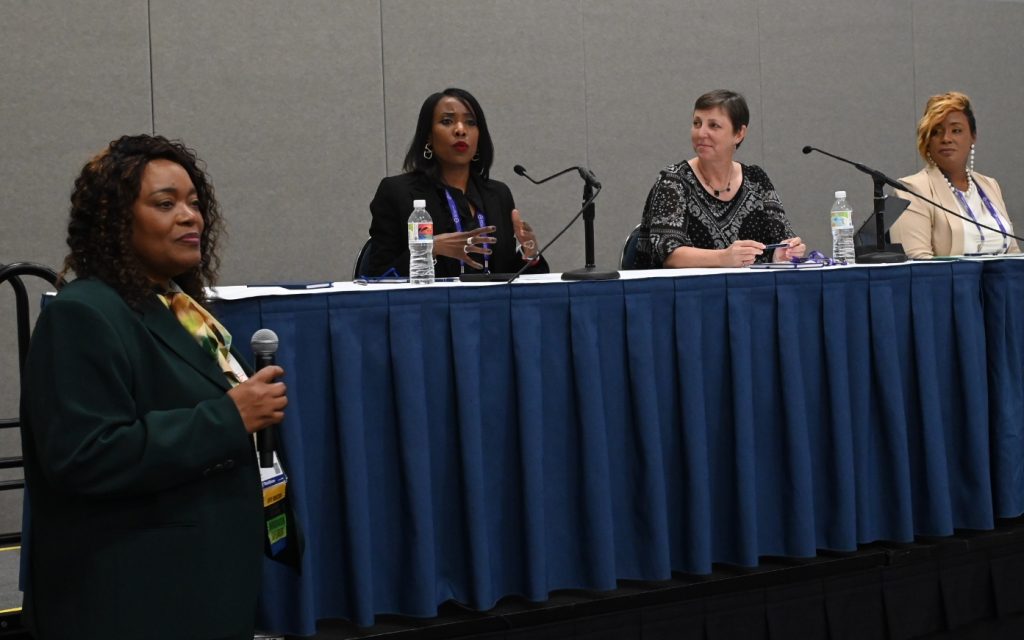Executives Share Hard Truths About Obstacles for Women in Leadership
10/9/2024

After decades of fighting for professional equity, women are slowly gaining more seats at the table. All the participants at the Empowering Women Leaders executive roundtable at the 2024 APTA TRANSform were women directors, VPs, or CEOs. The session was sponsored by Cubic.
Yet, “the transportation industry is facing a workforce crisis that has just not been well recognized. Women are leaving the industry at unprecedented rates, particularly those in leadership roles,” said Inez Evans Benson, SVP, national bus and facilities practice director, WSP.
As session moderator, Evans Benson asked the executives for some “honest talk” about reasons for the trend. She got it. Panelists shared experiences with unequal pay, overt or subtle discrimination, and being ignored or mistaken for a man’s assistant.
Wytangy Peak-Finney, a senior director at Birmingham-Jefferson County Transit Authority (MAX), AL, struggled with imposter syndrome before she knew the term, she said. She would doubt herself at work, but go home to her kids as Superwoman, because “I wanted them to see a different version of me. I wanted them to see the resilience.”
Peak-Finney credited supportive leaders, colleagues, and her husband with making the difference for her career. Starting as a receptionist with no aspirations other than providing for her family, she said her CEO urged her to apply for roles with ever greater responsibility, and the 2022 Leadership APTA class gave her a “kitchen cabinet” of helpful advisors.
Northern Virginia Transportation Authority (NVTA) CEO Monica Backmon was also nudged into leadership by a colleague. When she was chosen to head NVTA, she worked ferociously, sacrificing family time to prove herself, because “I was not their first choice… but (I decided) at whatever cost, I’m going to make them change their mind,” she said. “I was in the position, but I wasn’t seen.” Her efforts were eventually rewarded when a compensation survey showed she deserved a promotion, an assistant, and a pay raise.
Balancing work and family life was a common challenge, but for Julie Timm, an extreme imbalance reshaped her career. Now a director at Moffatt & Nichol, Timm had been CEO at Sound Transit and previously, Greater Richmond Transit Company before her father’s critical illness and crises with her son and foster daughter. She left Sound Transit after a year and a half, not, she said, because she lacked the grit to be CEO, but because she wanted her father to survive.
He did, and Timm, after settling her parents’ finances and healthcare, went back to work. She is not sure she will last, though. “Can I continue to serve myself, the industry, and community, and continue to take care of my parents when there is so much in the industry that is not receptive to a woman balancing these types of decisions?” she wondered.
The session concluded with audience questions and a reiteration of panelists’ advice to women: Believe you belong in that seat, even if you had to bring it to the table yourself.